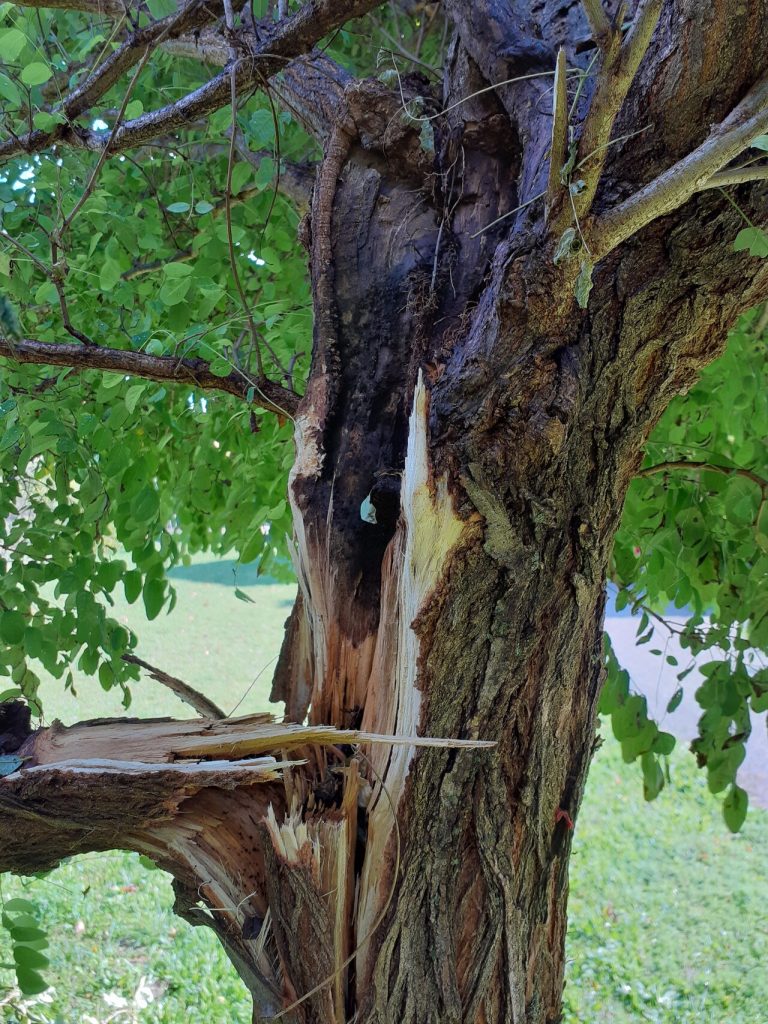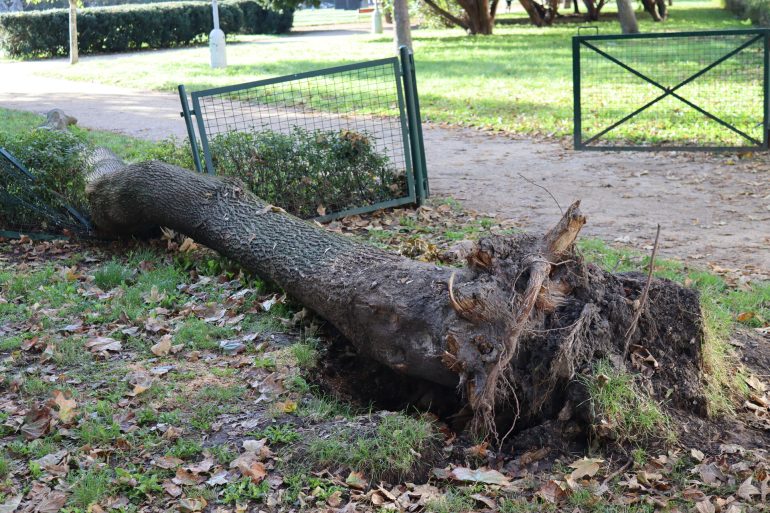Researchers from the Mendel University Faculty of Horticulture (ZF MENDELU) are conducting research on the negative effects of extreme weather in large cities. Concerned with major weather events becoming more frequent, such as high temperatures, floods, and storms, they are evaluating the current situation to develop functional solutions that will enable a reduction in the number of extreme events in the future. The project will be developed in collaboration with the Czech Hydrometeorological Institute and other partners.
One of the main goals of the project is to identify the causes of extreme weather in the urban environment. “We want to ensure the measurement of the urban climate according to the methodology we developed, and express the differences compared to the nearest climatological stations of the Czech Hydrometeorological Institute,” explained Petr Salaš from the Institute of Breeding and Propagation of Horticultural Plants at ZF MENDELU. “We will also assess the influence of greenery in cities. And then we will recommend its modification, species suitable and unsuitable for the urban environment due to the influence of the microclimate, but also with regard to allergenic pollen.”

According to Salaš, the main issue in big cities is the so-called urban heat island: “These are the parts where the change in the radiation balance is so great that there are higher air temperatures compared to the surroundings, but also to smaller cities. In clear weather in summer, they are higher by more than 5 °C.”
Extreme temperatures put a lot of stress on the human body. Heavy rainfall with large amounts of water can cause floods, which combined with strong winds can cause damage to properties. Thunderstorms exacerbate the situation with a mix of intense rain and powerful gusts.
The effects of meteorological extremes are the main focus of the project, precisely high air temperatures, extraordinary rainfall, or storms. The impact of these phenomena on public health will be investigated by the Faculty of Medicine of the University of Ostrava. The team from the Faculty of Horticulture will focus on the issue of the influence of greenery on the microclimatic conditions of habitats. “We will carry out targeted measurements in close cooperation with the Czech Hydrometeorological Institute and the Research and Breeding Institute of Fruit Breeding in Holovousy,” said Salaš.
The researchers point out that if the current trend continues, extremes will also become more frequent and they recommend taking measures as a way of reducing the extremes in the future. Salaš lists some of the measures that will have immediate impact: “Appropriate measures certainly include increasing the areas of green space, securing catchment areas and thereby limiting or even stopping the drainage of rainwater through sewers and the like. It is necessary to increase as much as possible the knowledge of residents and local governments in this issue, and also to multiply our knowledge into direct and indirect teaching at the Faculty of Horticulture or the entire university.”

The project is set to be carried out over a period of two years, until the middle of 2026 and is financed by the Czech Technology Agency from the program of applied research, experimental development and innovation in the field of the environment – Environment for Life. The partners of the project are the Faculty of Medicine of the University of Ostrava (coordinator), the Czech Institute of Hydrometeorology, the Institute of Global Change Research of the Academy of Sciences of the Czech Republic, the Research and Breeding Institute of Fruit Holovousy s.r.o. and INESAN, s.r.o.








